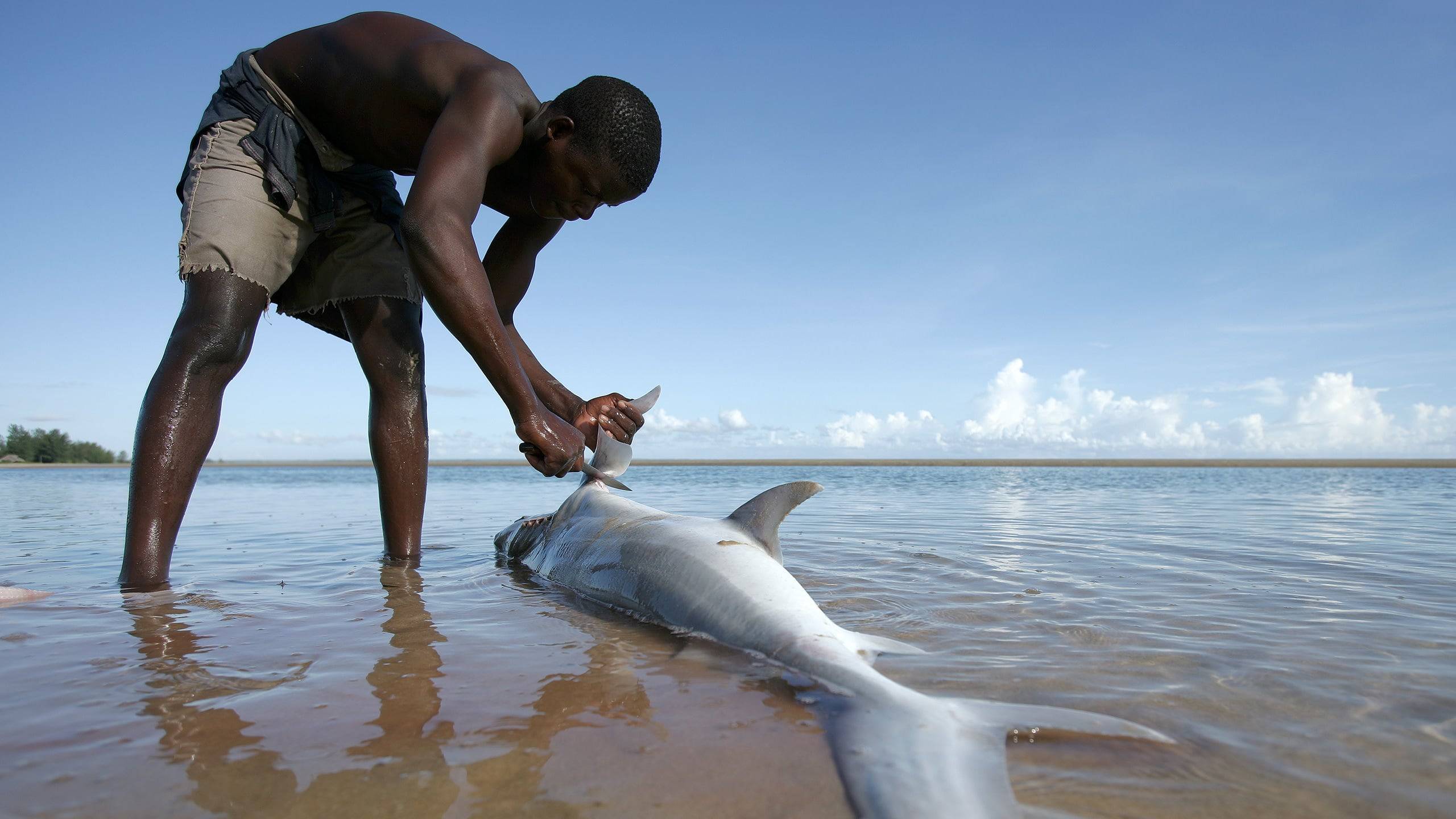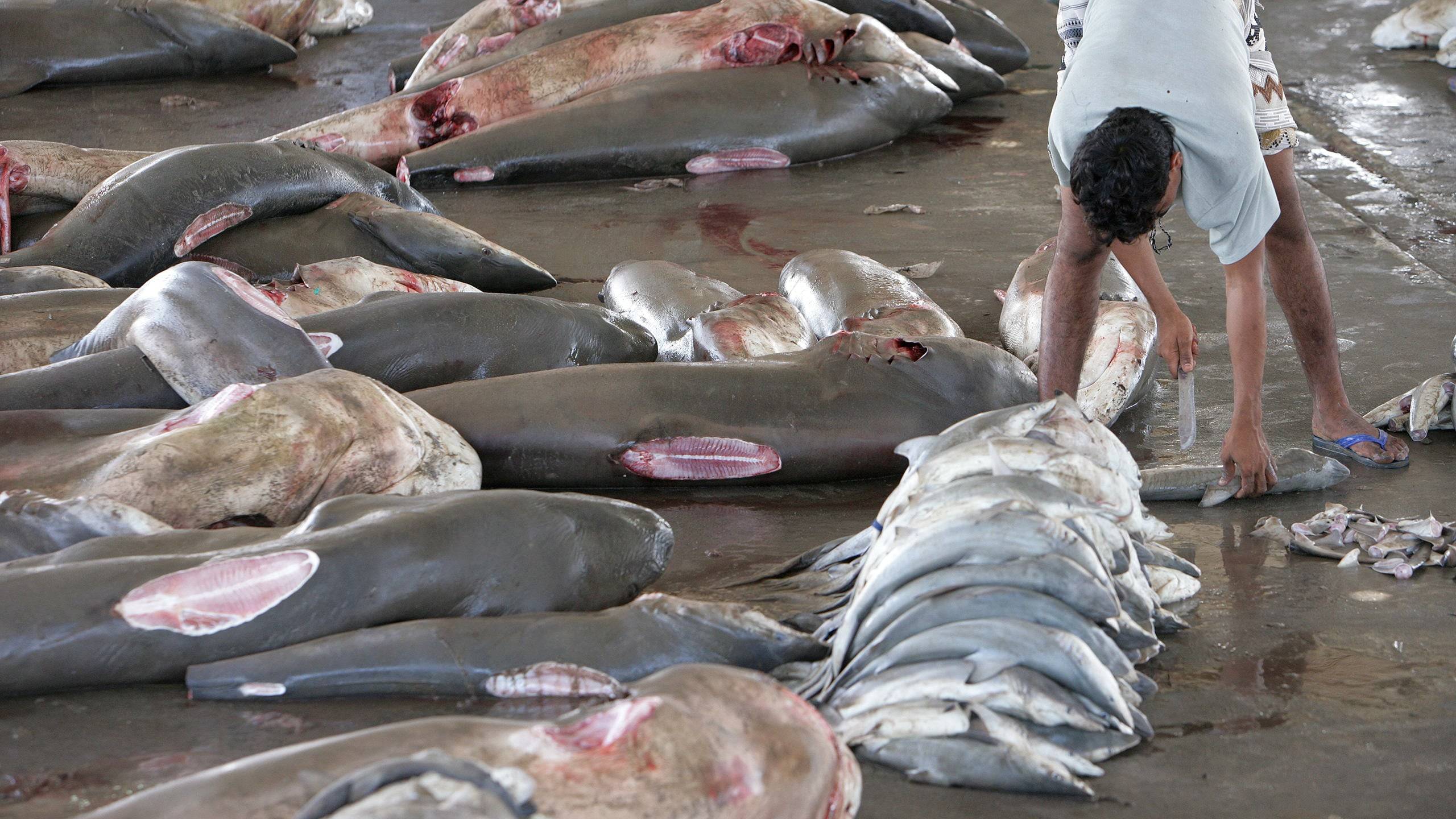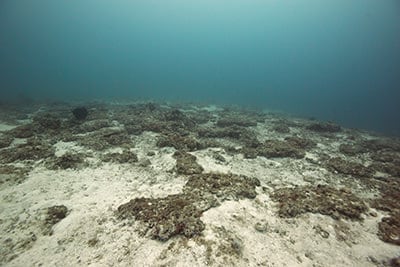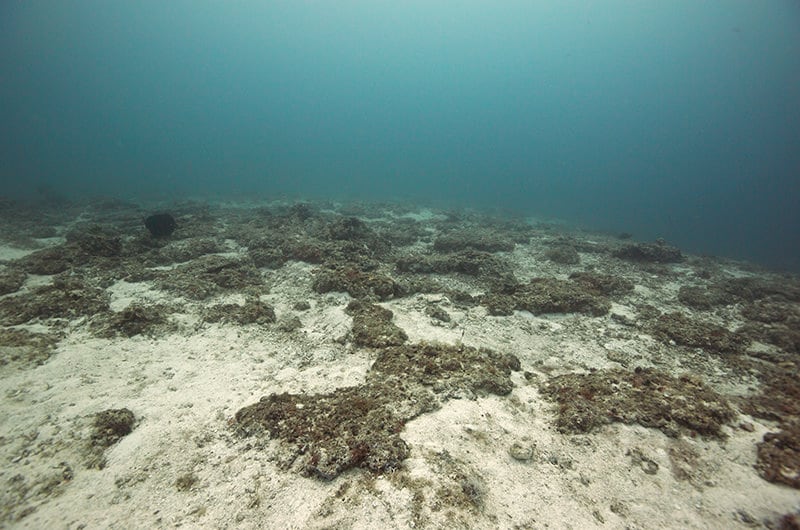Global Warming
Global warming exposes the oceans to particular stress. Temperature changes influence the behavior of sharks. The annual average water temperature, which is very critical for coral reefs, rises and the increased CO2 content over-acidifies the water. Extreme weather such as storms and hurricanes additionally damage the already weakened reefs. In entire reef regions, e.g. in the Barrier Reef in Australia, the reefs and thus reef communities are dying. Many sharks live in these reef regions and lose their food and habitat.
• Everyone is talking about global warming. Mostly, however, we only see its effects on the country. But the oceans are also suffering from these changes. The melting of ice caps containing very little salt is reducing the salinity in the affected northern and southern seas. Temperature, evaporation, winds and salinity are the motors of global ocean currents, and these in turn provide food for plankton, the primary producers in the sea.
Certain sea regions heat up more strongly or cool down. We know that sharks such as the lemon sharks have a very narrow temperature range in which they feel comfortable. If the water temperature changes, this also influences their behavior.
Coral reefs are a very complex and sensitive system. The symbiosis between the coral polyps and their chlorophyll-containing symbionts only functions within a narrow chemical and physical range. Chemistry and water temperature must be right. If the sea warms up and the chemistry changes, e.g. due to acidification because of too much CO2, this symbiosis suffers. The notorious coral death or "coral bleaching" threatens many reef regions, e.g. the Great Barrier Reef in Australia. Due to climate change, extreme weather events such as heavy storms and hurricanes occur more often and damage the reefs even more. Since many sharks live in reef regions they are affected by coral death because it deprives them of their food and livelihood.
The acidification of the oceans not only affects corals. Many marine organisms such as plankton, shells, snails or worms protect themselves through internal or external lime shells. And lime dissolves faster in acidic water than in normally neutral seawater and becomes brittle. The protective armored shell suffers.








